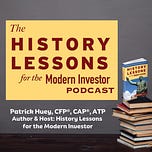On June 15, 1215, the Magna Carta was sealed at Runnymede near the River Thames in the English county of Surrey.
England’s King John affixed his seal to the Magna Carta—a document that would become the cornerstone of constitutional governance in the Western world. At the time, it was a response to a crisis: a group of rebellious barons, fed up with heavy taxes and arbitrary royal rule, forced the king’s hand to agree to a list of rights and limits on his power. While the Magna Carta’s immediate effects were short-lived (King John renounced the charter within months, plunging England back into civil war), its symbolic power endured, later inspiring the development of parliamentary systems, legal rights, and the concept of inviolable property rights. The Magna Carta’s principles traveled far beyond medieval England. They echo in foundational documents like the U.S. Constitution, the Universal Declaration of Human Rights, and in modern debates over property rights, government accountability, and economic liberty. Its story is a lesson in how constraint, negotiation, and transparency can promote stability and prosperity over the long run.
Here are four Lessons for the Modern Investor from the signing of the Magna Carta.
📜 Set Clear Boundaries to Protect Your Interests
The Magna Carta’s genius was not just in what it granted but in what it constrained. By clearly setting limits on royal authority and formalizing property rights, it reduced uncertainty, paving the way for commerce and investment. For investors, the lesson is clear: establish your own boundaries and rules through written investment policies, risk limits, and writing down your vision, values, and goals. Formalizing your process minimizes emotional decision-making and protects your interests when volatility strikes.
📜 Accountability Fosters Trust and Longevity
The barons demanded that even the king be held accountable—not just to law, but to a council of peers. This idea, radical in its day, is central to good investing: holding companies, managers, and even yourself accountable. Seek out transparency. Don’t be swayed by hype. Trust, built on accountability, is what underpins both markets and relationships.
📜 Adaptation is Key—Short-Term Change Can Spark Long-Term Reform
While many Magna Carta clauses were quickly ignored or repealed, its long-term influence grew over the centuries as new situations demanded adaptation. Likewise, not every strategy you implement will work perfectly the first time. The best investors aren’t wedded to the past—they learn, adapt, and refine their portfolios when faced with new risks, regulations, or opportunities. Let early setbacks inform your next move, turning volatility into a source of wisdom.
📜 Negotiate and Diversify Your Sources of Value
The charter emerged from negotiation—a power struggle where neither the king nor the barons got everything they wanted, but each gained some assurance. In investing, you rarely achieve all your goals at once; prudent strategy requires negotiation between risk and reward, growth and safety. Don’t rely on a single “monarch” to prop up your entire portfolio.
A Final Thought
The Magna Carta endures as a testament to the power of boundaries and accountability in creating stable and prosperous systems. While born from conflict and compromise, its legacy is one of gradual, transformative progress—proof that even imperfect beginnings can fuel long years of improvement.
This episode is sponsored by Victory Independent Planning. Ready to take the stress out of your retirement? At Victory Independent Planning, we put you on the right trajectory with our exclusive VIP Retirement Glidepath™️!
Schedule an assessment now: https://freebusy.io/victoryindependentplanning-VIP-Booking/phone-consultation
🎯Patrick Huey is a small business owner and the author of three books on history and finance as well as the highly-rated recently-released fictional work Hell: A Novel. As owner of Victory Independent Planning, LLC, Patrick works with families and non-profit organizations. He is a CERTIFIED FINANCIAL PLANNER™ professional, Chartered Advisor in Philanthropy® and an Accredited Tax Preparer. He earned a Bachelor’s degree in History from the University of Pittsburgh, and a Master of Business Administration from Arizona State University. Patrick previously served as a Naval Flight Officer from 1996-2005, earning the Strike Fighter Air Medal during combat operations and two Navy Achievement Medals. 👉🏻 Reach him at 877-234-8957 or schedule a time to talk using this link:
https://freebusy.io/victoryindependentplanning-VIP-Booking/phone-consultation
#MagnaCarta #HistoryLessons #Planning #LearnFromHistory
Follow along for more insights, strategies, and reflections.





